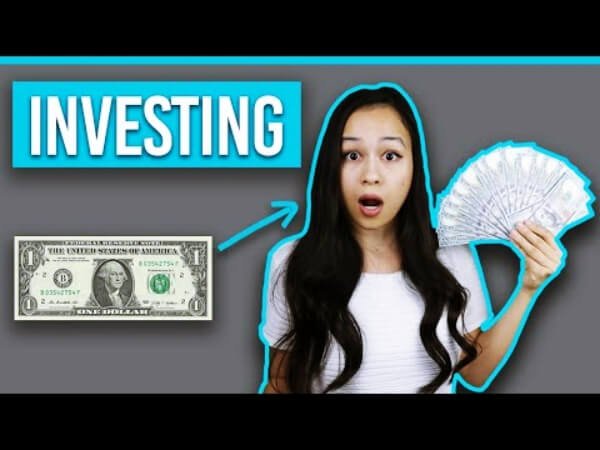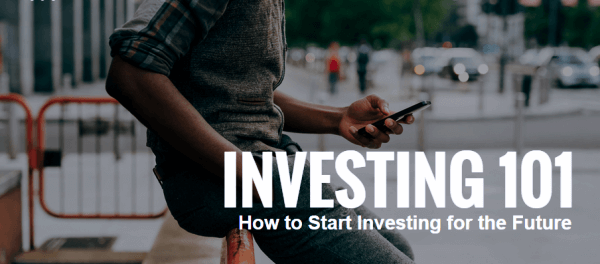Starting your investment journey in the financial markets may likely be one of the most daunting bits of controlling your finances, but it’s also potentially the most rewarding. This is one of the few ways to beat inflation and boost your purchasing power over time.
Read more: Starting Your Investment Journey Without Feeling Overwhelmed
Investment Meaning
Investment is one way to multiply your savings to reach your financial goals. Even though investing comes with risks, it generates better returns than keeping your money in a bank. Additionally, compounding lets you make more by re-investing the money you earn from your investments. When you begin your investment journey early, time and compounding will increase your wealth beyond your imagination for some time.
Related: Cost Of Convenience: Identifying And Eliminating Hidden Expenses

Different kinds of investing
Active investing
Active investing implies you have time to research your investments and construct and maintain your portfolio by yourself. In other words, if you have a plan to buy and sell individual stocks via an online broker, it means you want to be an active investor. You will need these three things to successfully be an active investor:
- Time: Investing actively demands lots of homework. You will need to do some research concerning the stocks. Also, you will have to perform certain basic investment analyses and keep up with your investments after purchase.
- Knowledge: You will need to manage the little time you have in a day to analyze investments and properly research stocks. You should at least be conversant with some of the basics of analyzing stocks before you invest in them.
- Desire: Most investors don’t like to spend time on their investments. And because passive investments have, over time, provided continuous returns, there is absolutely nothing wrong with this strategy. As stated by Warren Buffett regarding passive investments, “It isn’t necessary to do extraordinary things to get extraordinary results.”
It’s also important to understand that active investing doesn’t mean buying and selling stocks frequently, it doesn’t mean day trading, and it doesn’t mean buying stocks you think will go up over the next few weeks or months.
Passive investing
In to sum up passive investing involves putting your money to work in investment vehicles where somebody else does the hard work. Mutual fund investing is an example of this strategy. Or you can use a hybrid strategy. For example, you can hire a financial or investment advisor or use a robo-advisor to construct and execute an investment strategy on your behalf.
Related: ESG Investing: Understanding Environmental, Social, and Governance Factors

Types Of Investment
Below is a list of some of the diverse investments you should know about:
Real estate
There is a strong demand for housing and commercial property in Nigeria. Real estate investments can take the form of owning rental properties, buying and reselling properties, or investing in real estate development projects.
Stocks
Start your investment journey by investing money in stocks. This lets you buy company shares and certainly make more income from dividends or asset appreciation. Stocks offer you a fraction of the ownership stake in a business, and this stands to be the best way to build long-term wealth for life and family.
Bonds
Most Investors make use of bonds to build a sustainable revenue stream, and they generate less risky but lower gains by owning bonds than they would with stocks.
Mutual funds
Mutual funds provide most investors a way to gain exposure to a vast collection of assets and can be a nice option for those who are starting their investment journey or do not have the time or expertise to control their portfolios. A mutual fund can be a great way for inexperienced investors to make significant income in the market.
Exchange-traded Funds (ETFs)
ETFs may likely be compared to mutual funds, which give you the level ground to invest in bonds, stocks, or any other financial assets, but they also offer not many benefits to mutual funds. ETFs tend to have very low management charges, making it affordable to possess mutual funds. Additionally, you can trade ETFs throughout the day like a stock. And of course, ETFs can yield significant revenue for beginner investors.
Alternative investments
Investments outside the conventional stock, bond, and cash markets, such as hedge funds, private equity, venture capital, and infrastructure funds.
All investments have some level of risk; thus, diversification, working with a financial advisor, and regularly reviewing your investments can help mitigate risk and boost your chances of success.
Related: Automate Your Finances: Leverage Technology to Simplify Money Management

How To Kick Start Your Investment Journey
Successful investing is a journey, not a one-time event, and you’ll need to prepare yourself as if you were going on a long trip. Once you understand what you want, you just have to jump in. You can decide to invest on your own or with the professional guidance of a financial planner. Below, we discuss in detail each of the key steps to help you get started with investing.
Decide your investment goals
Before you decide to open an account and begin comparing your investment options, you should first consider your overarching goals. Are you looking to invest for the long term, or do you want your portfolio to generate income? Knowing this will narrow down the number of investment options available and simplify the investing process.
Understanding your goals and their timelines will help determine the amount of risk you can afford to take and which investing accounts should be prioritized.
Know What Works in the Market
Read books or take an investment course that deals with modern financial ideas. The people who came up with theories such as portfolio optimization, diversification, and market efficiency received their Nobel prizes for good reason. Investing is a combination of science (financial fundamentals) and art (qualitative factors).
Know Your Investment Strategy
Nobody knows you and your situation better than you do. Therefore, you may be the most qualified person to do your investing—all you need is a bit of help. Identify the personality traits that will assist you or prevent you from investing successfully, and manage them accordingly.
Find the Right Investing Path
Your level of knowledge, personality, and resources should determine the path you choose. Generally, investors adopt one of the following strategies:
- Don’t put all of your eggs in one basket. In other words, diversify.
- Put all of your eggs in one basket, but watch your basket carefully.
- Combine both of these strategies by making tactical bets on a core passive portfolio.
Be in it for the Long Term
Sticking with the optimal long-term strategy may not be the most exciting investment choice. However, your chances of success should increase if you stay the course without letting your emotions, or “false friends,” get the upper hand
Be Willing to Learn
The market is hard to predict, but one thing is certain: it will be volatile. Learning to be a successful investor is a gradual process and the investment journey is typically a long one. At times, the market will prove you wrong. Acknowledge that and learn from your mistakes.
Use investment funds to reduce risk
Risk tolerance is one of the first things you should consider when you start investing. When markets decline, as they did in 2022, many investors flee. But long-term investors often see such downturns as a chance to buy stocks at a discounted price. Investors who can weather such downturns may enjoy the market’s average annual return—about 10 percent historically. But you have to be able to stay in the market when things get rough.
Monitor your investments
It is important to regularly review your investments and make adjustments as needed. This may include selling off underperforming investments and investing in new opportunities as they arise.
Related: Winning Scholarships For Community College Students

Golden Rules Of Investing
Below are the golden rules of investing you should know.
- Understand your investment
- Think long-term
- Time
- Start investing early
- Diversify your portfolio
- Ignore the trend
- Avoid crowds
- Invest in known business
- Rebalance
- Review your portfolio
- Stick to your goals
- Be consistent
- Consider tax implications
- Control your emotions
- Play the investment Game
- Never borrow to buy
- Never invest in poor-quality companies
- Never invest just to avoid tax
Related: International Education Trends: Adapting To A Changing World

Importance Of Starting Your Investment Journey
Investments are the most efficacious way for individuals to build their wealth and make savings for their long-term goals like retirement, college fee payments, house purchases, and lots more.
Compounding Power
Compounding happens when an investment generates earnings or dividends which are reinvested. These earnings or dividends then generate their earnings. Furthermore, compounding is the earnings generated by your investments from the previous earnings.
Fosters time to control any market fluctuations
Investments (especially market-linked investments) offer high risk. The returns can be affected by short-term market volatility. Starting early allows your investments to overcome these market volatilities and offer higher returns in the long term.
Hit Inflation
Inflation is the rate of increase in prices of goods and services over a given period. This implies you have to pay additional cash to purchase the very same goods and services in the future. This has a serious effect on your budget.
You can make more revenue or returns when you invest timely. This helps you to remain financially ready to hit inflation and keep calm.
Reach your financial goals fast
You may have goals, such as buying a house or a car, starting a venture, retiring early, and more. When you start investing early, your investment provides you with returns at an early age. This enables you to achieve your goals sooner in life.
High-risk management
An important factor that can be considered when you talk about risk management is Age. There are fewer responsibilities for one at a younger age. This makes it possible for you to invest in high-risk mechanisms like equity or mutual funds to make better returns.
Also, your responsibilities increase as you grow older making your risk management ability to decrease. At this stage of life, the option may be to invest in low-risk mechanisms. These low-risk mechanisms may offer you lower returns on any investment.
Related: Debunking Money Myths: Separating Fact From Fiction In The Financial World

Best App For Starting Your Investment Journey
The below-listed apps can help you start as a beginner in the investment landscape.
- Acorns: Acorns enables you to save and invest in spare change, bank smarter, earn bonuses from investments, and more.
- Robinhood: Robinhood has commission-free investing and resources to aid your financial future. Register and gain your first stock for free.
- SoFi: SoFi is an FDIC-insured, nationally chartered bank that offers SoFi Checking and Savings.
- Ally Invest: For self-directed traders, Ally Invest offers a dynamic streaming trading experience. You can manage your account, access your portfolio, and make trades seamlessly.
- Stash: Invest and build wealth with Stash, the investing app helping over 6M Americans invest and save for the future.
- Webull: you can begin your investment journey with Webull’s intuitive platform for stocks, options, and ETFs. Register now to get free resources for trading and also community insights.
- Tastytrade: With this app, you can open an account for trading and begin to trade options, stocks, and futures at one of the high-trading brokerages in the industry.
Related: Budgeting Bootcamp: From Zero To Hero In 5 Easy Steps

How To Stop Worrying About Your Investments
Your time frame can determine which type of investments are most effective for you. This is how to avoid worries in your investment journey.
Stabilize your long-term and short-term investments
If your attention is more on short-term investments, those you can attack in five years to come, money market accounts, high-yield savings accounts, and certificates of deposit will be that convenient. Your return won’t be as high as long-term investments, but it may be more secure in the short term.
Never fall for Simple flaws:
One common error of new investors is being too involved. Research shows that actively traded funds usually underperform compared to passive funds. Your money can grow more and you maintain serenity when you keep yourself from checking (or changing) your accounts severally in a year.
An additional flaw is failing to use your accounts as they are considered. Use them for almost anything else, and you are likely to get stuck with taxes and an extra penalty.
Hold on to learning and saving:
You’re already working on one of the best ways to start your investment journey which is learning and research. Consider all the tangible information you can get regarding investments, including books, online articles, content on social media, and even YouTube videos. With these great resources available you can find the investing strategy and philosophy that’s right for you.
You can also find a financial advisor who will likely aid you in setting financial goals and personalizing your journey.
Related: Gig Economy Jobs That Offer The Best Bang For 2025
Conclusion
Starting to invest can be an exciting thing for many people who are a little leery of investing, and yet to learn the basics. There are lots of financial products and plenty of different investment advice out there. As you start, first educate yourself on investing, lay out your financial goals, and don’t rush to make a fortune.
Starting your investment journey now can be the very best decision of your financial life, thus helping you set a lifetime of financial security and a happy retirement, too.

